BEHIND THE HEADLINES
Save our seas
Our beautiful shores are at risk. Pollution soils our waters, killing wildlife and endangering human life. Nicola Cutcher asks – how has it got so bad?
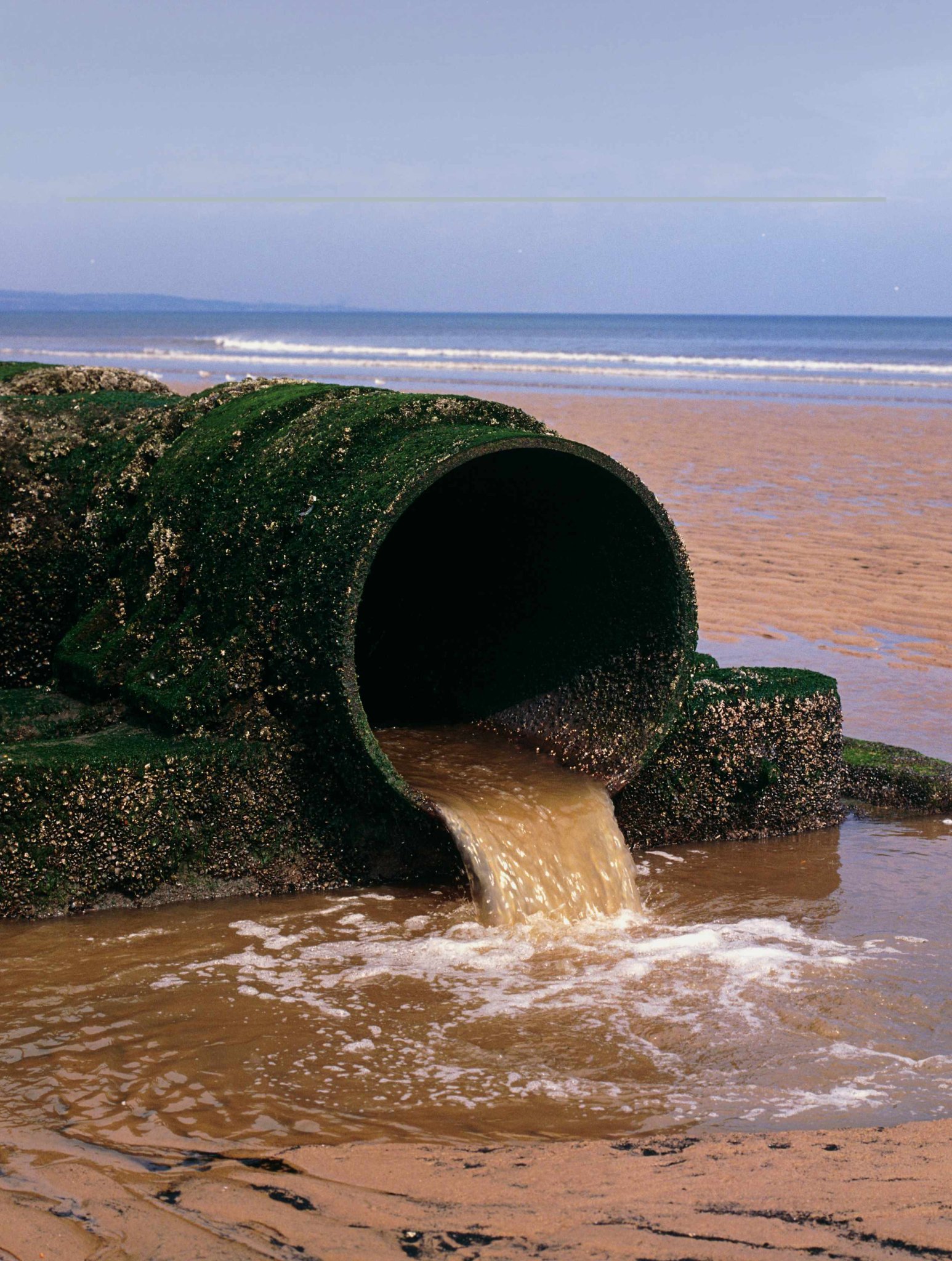
WHAT IS THE PROBLEM?
Britain’s beaches are blighted by sewage pollution. In 2022, raw sewage was discharged into our waterways more than 300,000 times. Some went straight into the sea from pipes on the coast and the rest went into rivers, flowing towards the sea.
If you’re planning to hit the coast, you would be wise to check the ‘Safer Seas and Rivers Service’ produced by Surfers Against Sewage. It provides real-time information about water quality, so you can look up your destination and see whether it’s safe to enter the water. Nobody wants to swim in sewage, because you might get sick, but at least we can choose not to go in. Sewage pollution also harms aquatic wildlife and risks contaminating shellfisheries.
“In 2022, raw sewage was discharged into our waterways over 300,000 times”
Our sewerage system was designed to “spill” raw sewage in “exceptional circumstances”, to prevent the system being overwhelmed by freak weather events and high rainfall, when sewage might otherwise back up into houses and businesses. However, this emergency measure is now being used (and abused) far too frequently, with dirty discharges happening even at times of no rain.
There are two main drivers for this worsening situation. Firstly, our growing population puts ever more stress on the sewerage network and our sewer system hasn’t kept pace with increasing demand. Secondly, urban sprawl reduces the land’s capacity to absorb water, so more water floods down our drains when it rains, as less is absorbed into the ground.
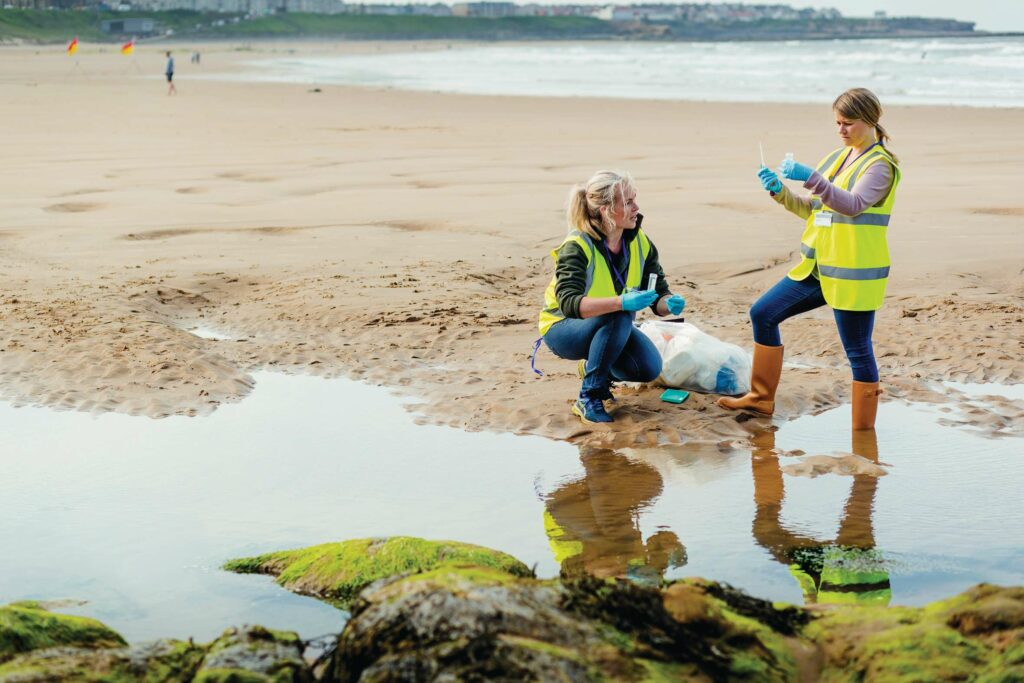
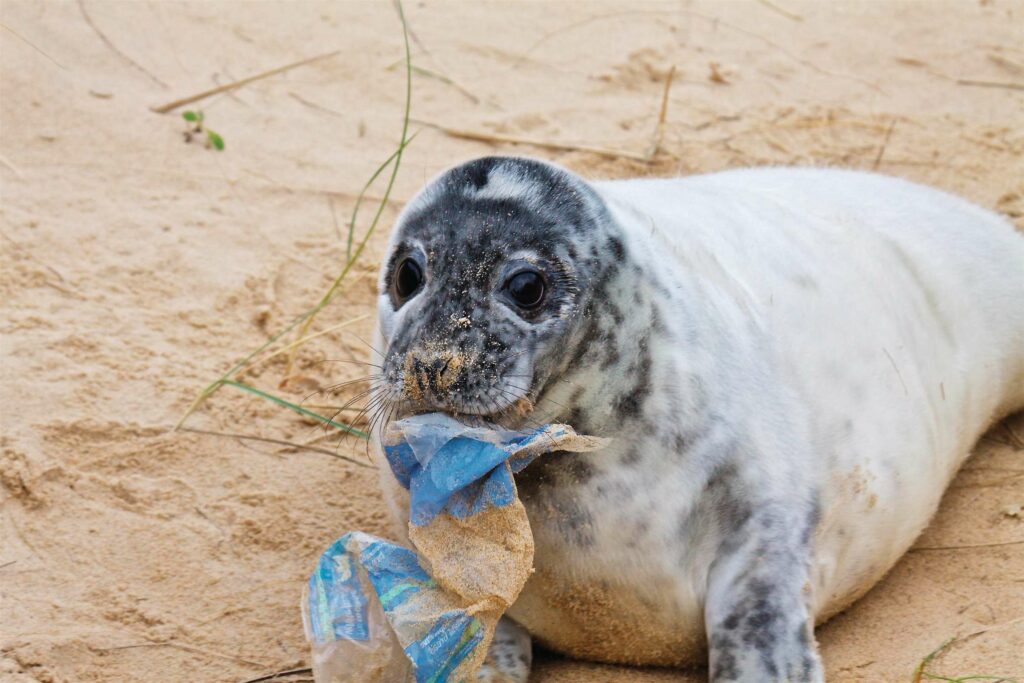
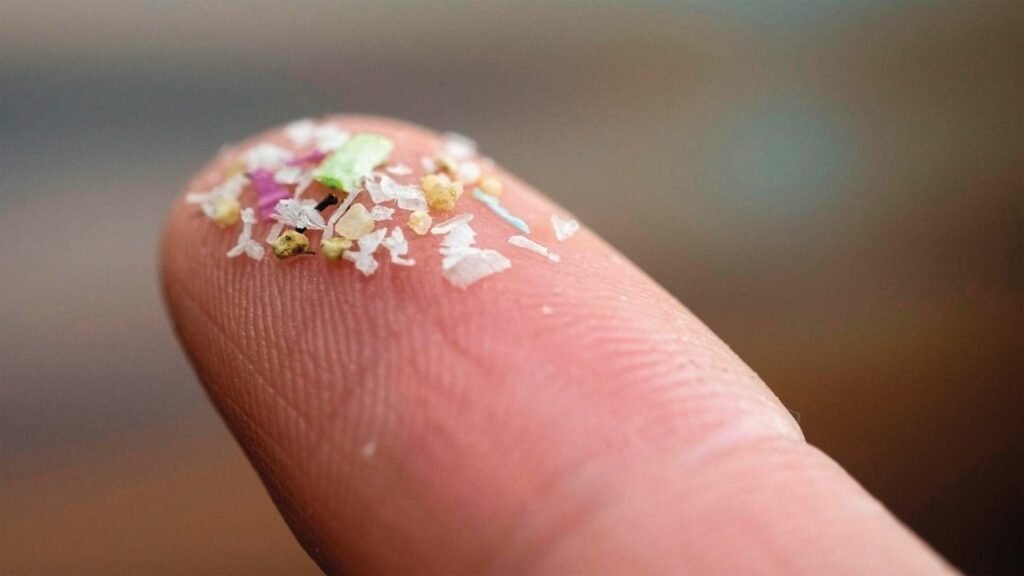
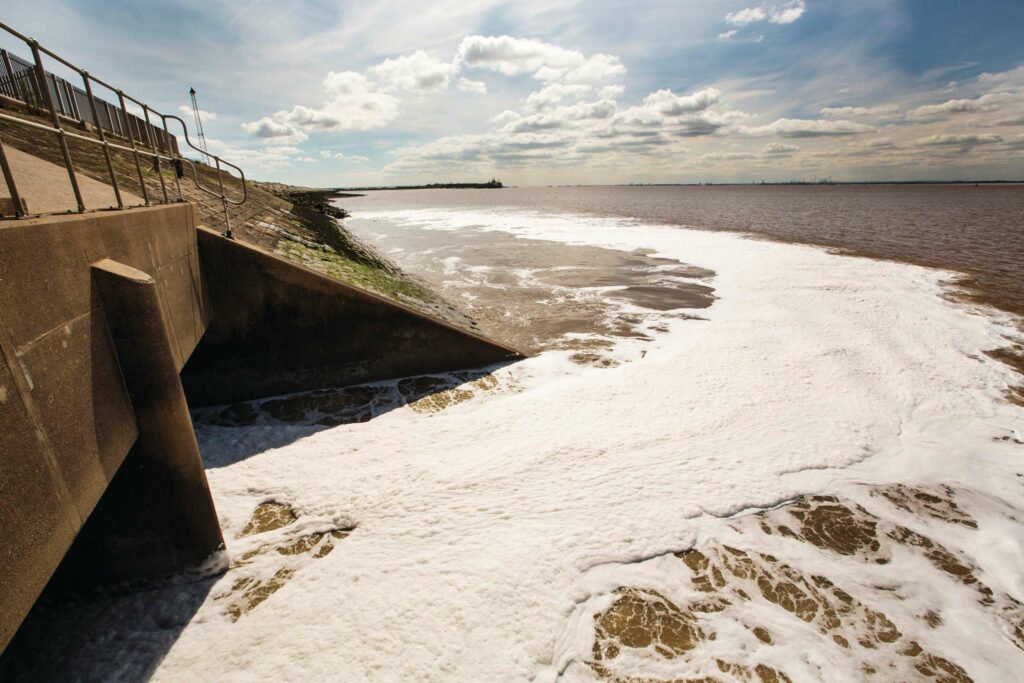
OTHER POLLUTANTS
Sewage discharges also pump wet wipes and sanitary products into our coastal waters, adding to the pernicious problem of plastic pollution. Our coast is already besmirched with local litter and rubbish washed in from rivers, dominated by plastic bottles, food wrappers, cans and takeaway items. Discarded fishing nets are another key source of plastic pollution. And that’s not the only trouble with the fishing industry.
The greatest threat to seabirds is being accidentally caught by a fishing line or net. Bycatch and overfishing is driving the decimation of biodiversity at sea.
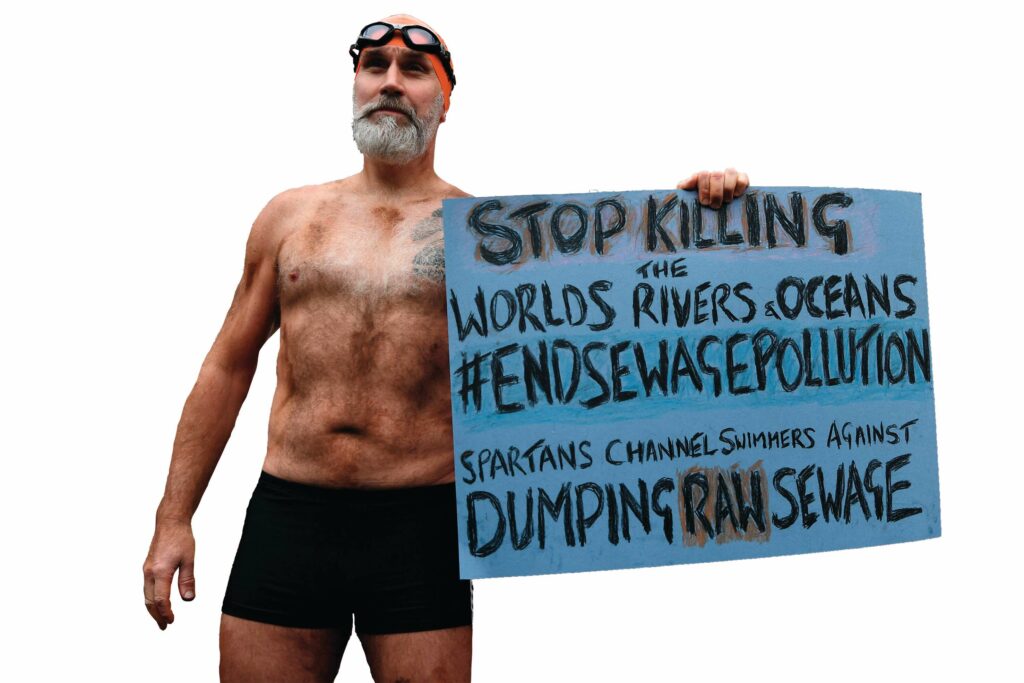
Sewage also carries a chemical cocktail of antibiotics, pharmaceuticals and microplastics into our waters. The Marine Conservation Society is running a Stop Ocean Poison campaign to highlight the dangers of a group of several thousand chemicals known as PFAS (per- and polyfluoroalkyl substances), nicknamed ‘forever chemicals’ because they persist in the environment and don’t break down. PFAS can make items waterproof or greaseproof and they’re everywhere: in non-stick pots and pans, waterproof or stain-resistant clothes, food packaging and cleaning products.
The farming sector is another source of pollution. Our livestock population dwarfs our human population. For some areas, such as parts of Devon, water quality problems are more often related to manure and slurry run-off from farms than from sewage.
WHO IS TO BLAME FOR SEWAGE POLLUTION?
Water companies have failed to adequately invest in our sewerage system over the past few decades to keep pace with demand. There has been public outrage at the sight of water companies paying out billions of pounds in dividends to shareholders, while shortchanging bill-payers by dumping their costs on to the environment.
The sewage scandal is also a failure of government and regulation. Our environmental agencies have suffered major funding cuts over the past decade, reducing their ability to monitor, investigate and prosecute pollution incidents.
Similarly, our governments are not preventing overfishing, nor doing enough to tackle pollution caused by plastic, chemicals and farming.
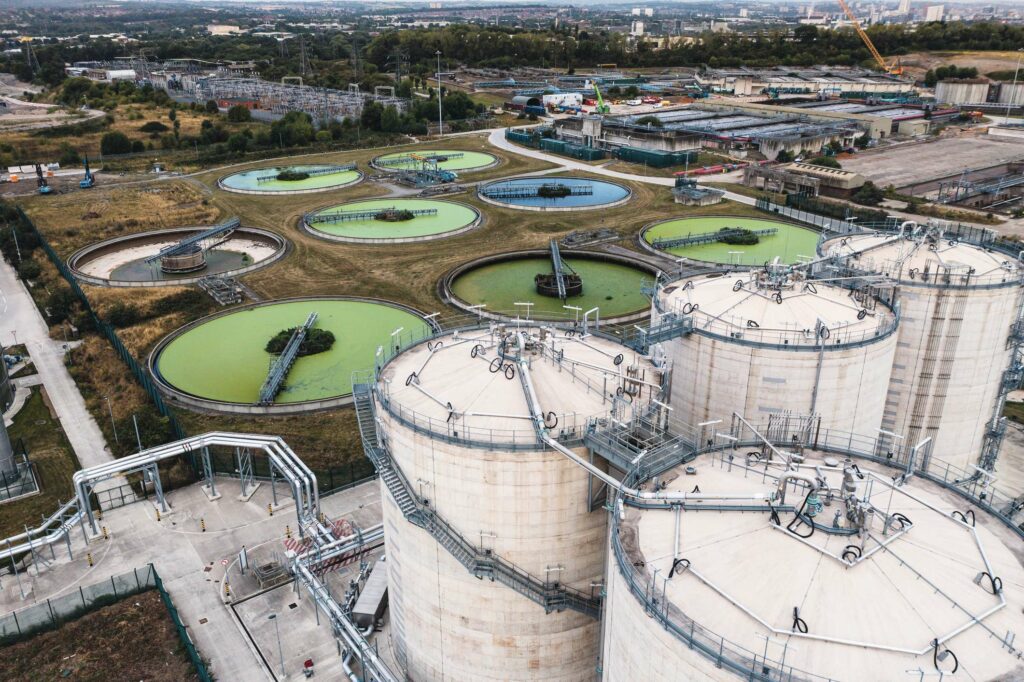
WHAT NEEDS TO BE DONE?
More monitoring
Governments need to provide more funding to our environmental agencies, so they can increase monitoring and take robust action against polluters. Fines need to be large enough to prevent pollution being profitable.
Update sewerage infrastructure
Sewerage infrastructure requires major investment after chronic under-investment for decades. If water companies are to tackle this problem at scale, and quickly, we should expect to pay higher water bills.
Protect storm flows
Governments should require screens to be installed on all storm overflows to stop solid debris, including wet wipes and sanitary towels, from being released into the environment.
More nature-friendly farming
We need our landscapes to absorb more water, slow the flow and divert water away from sewers at times of high rainfall. We need more wetlands, ponds and swales, as well as green roofs. These natural solutions would make us more resilient against flooding and drought, while providing more habitat for wildlife.
Governments must incentivise more nature-friendly farming practices, to build healthy soils that hold more water, while reducing pollution from slurry and chemicals washing into the sea.
Reduce plastic pollution
All pollution is best prevented at source. We need a whole-system approach to reduce litter and plastic in our environment. We could ban all plastic wet wipes. Every year,an estimated 14 billion plastic drink bottles and nine billion drink cans are bought in the UK. Government policies on plastic bags have greatly reduced the number found on beaches, showing the potential of legislation to effect real change. All four UK nations have committed to introducing a Deposit Return Scheme for drink cans and bottles. This entails paying a small deposit whenever buying a drink in a single-use container, reimbursed when the item is returned. Such schemes have proved highly effective in such countries as Norway and Germany, ensuring fewer bottles get thrown away.
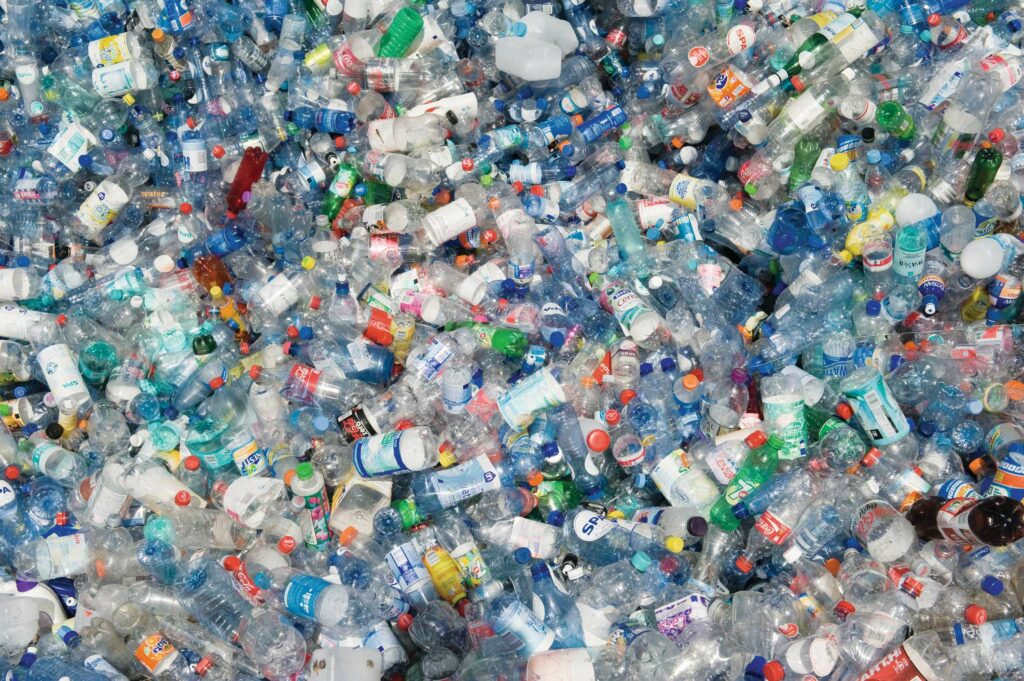
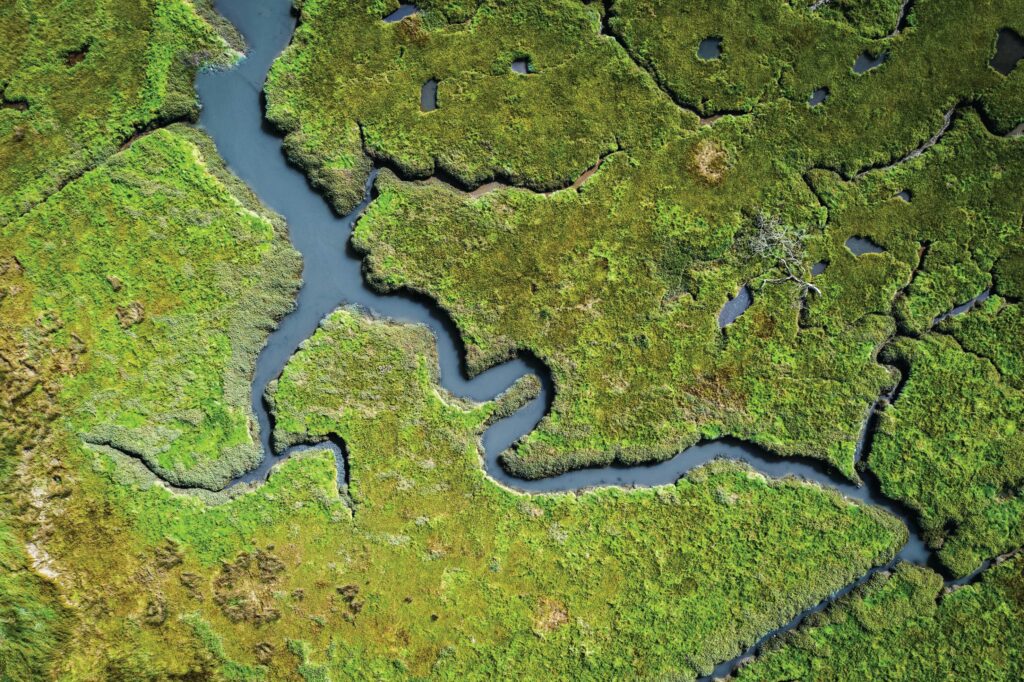
“Every year, an estimated 14 billion plastic drink bottles and nine billion drink cans are bought in the UK”
Governments need to address chemical pollution, too. Lawmakers could curtail the use of ‘forever chemicals’ by tackling them as a group and banning all PFAS for non-essential use, rather than banning individual PFAS one at a time.
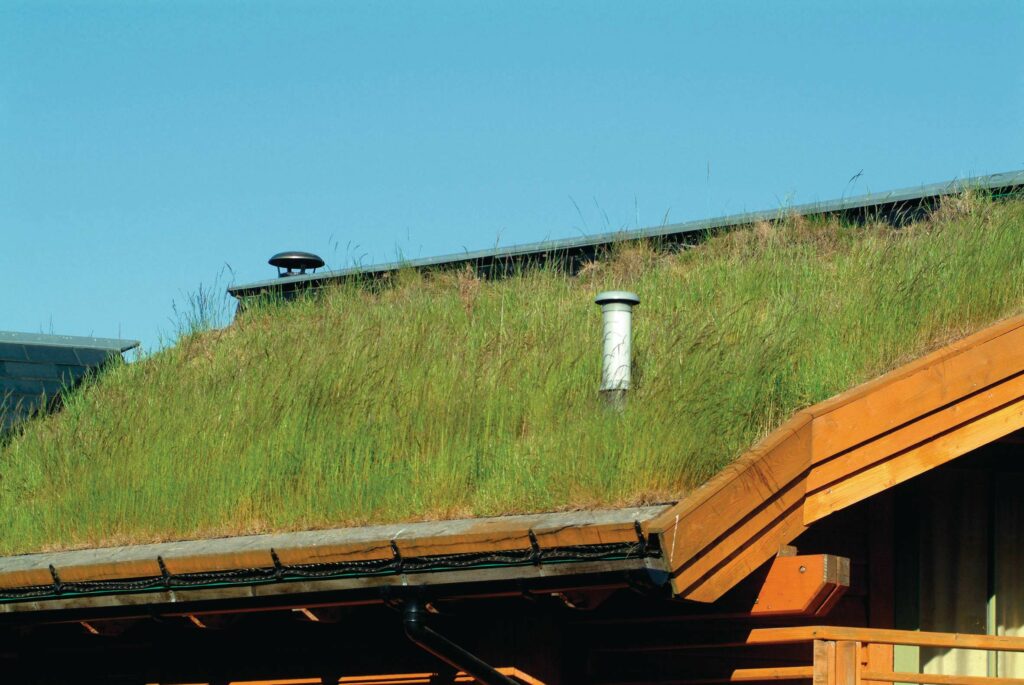
WHAT CAN WE ALL DO?
Save water
Only flush the three Ps: pee, poo and paper. Don’t put anything else down the loo. Wet wipes and sanitary products can create blockages that cause sewage overflows. We should also try to save water by reducing our usage, with shorter showers and fewer flushes. We can harvest roof run-off in water butts and use it to water our plants.
Reduce plastic use
Let’s reject throwaway culture and stop buying single-use plastic. Carry a reusable water bottle wherever you go and if you enjoy a takeaway, don’t be afraid to ask them to serve you using your reusable cup and reusable lunch box. It’s worth switching to reusable period products and reusable nappies and using refills for bathroom and cleaning products.
Eat fewer fish
Take pressure off the ocean by eating fewer fish. Reduce your chemical footprint by buying organic food. When shopping, try to avoid products containing PFAS – you can find a handy list at pfasfree.org.uk.
Join a beach clean
It’s cheering to band together with others to do something positive. Join or organise a beach clean. The Marine Conservation Society encourages groups to clean and survey the beach litter, gathering the data to drive change. Self-started community groups are also springing up along our coastline. Groups such as SOS Whitstable have been instrumental in drawing attention to the sewage crisis. In Margate in Kent, ‘Rise Up, Clean Up’ runs regular beach cleans and has taken the initiative of installing rubbish-bag dispensers along the seafront to normalise litter-picking and encourage visitors to do their bit. The group is also campaigning for a water fountain to help reduce demand for plastic bottles. Surfers Against Sewage has a network of Plastic Free Communities and Plastic Free Schools. Look out for efforts near you and if you can’t find anything, why not start one?
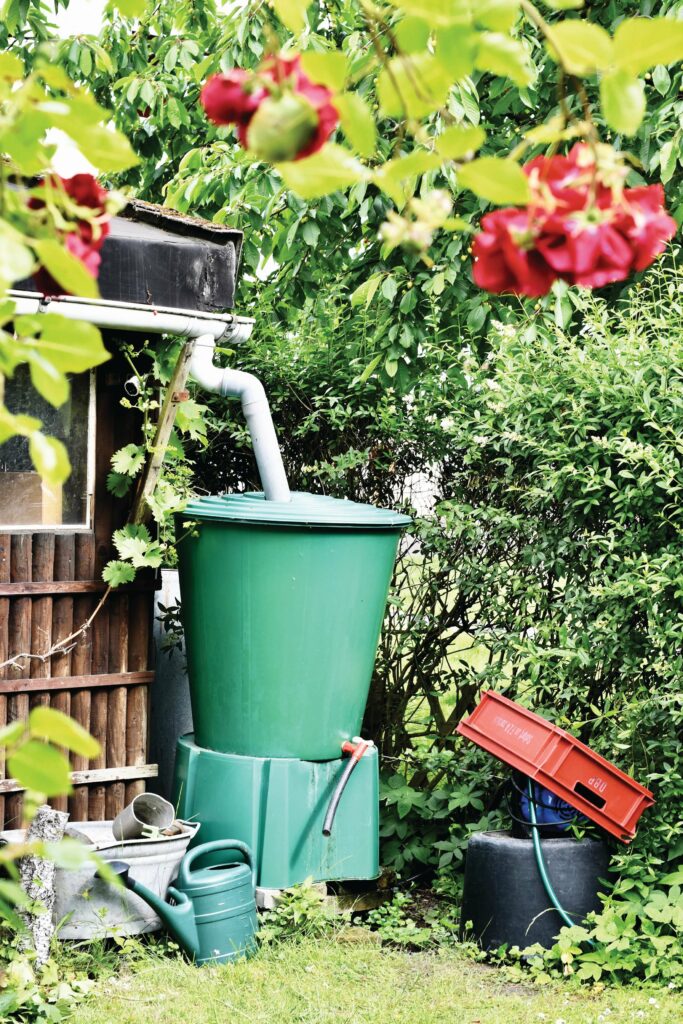
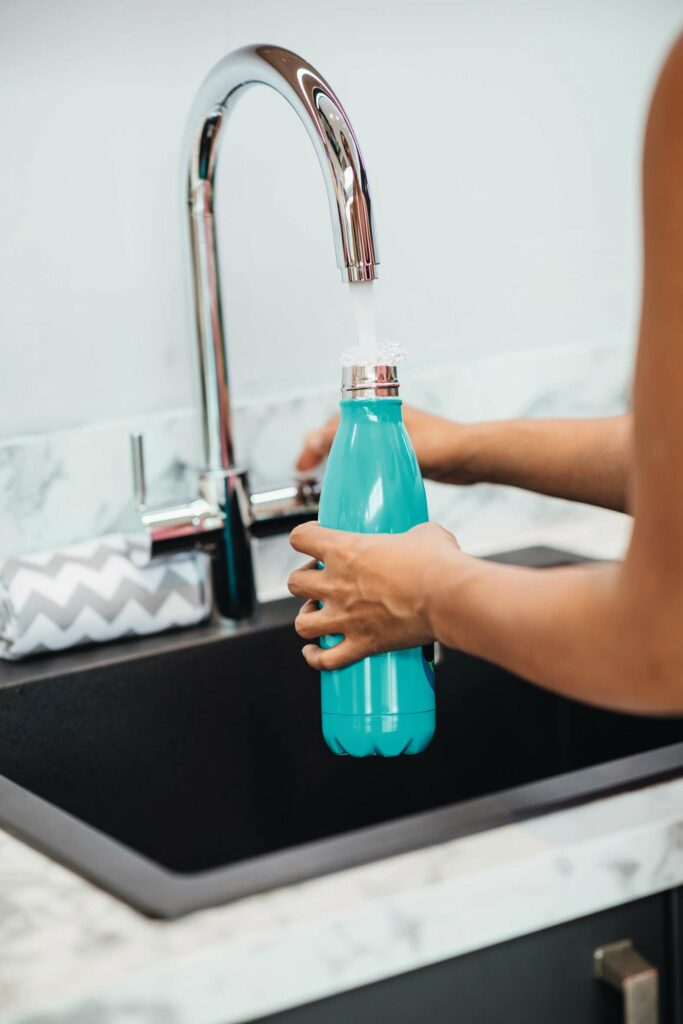
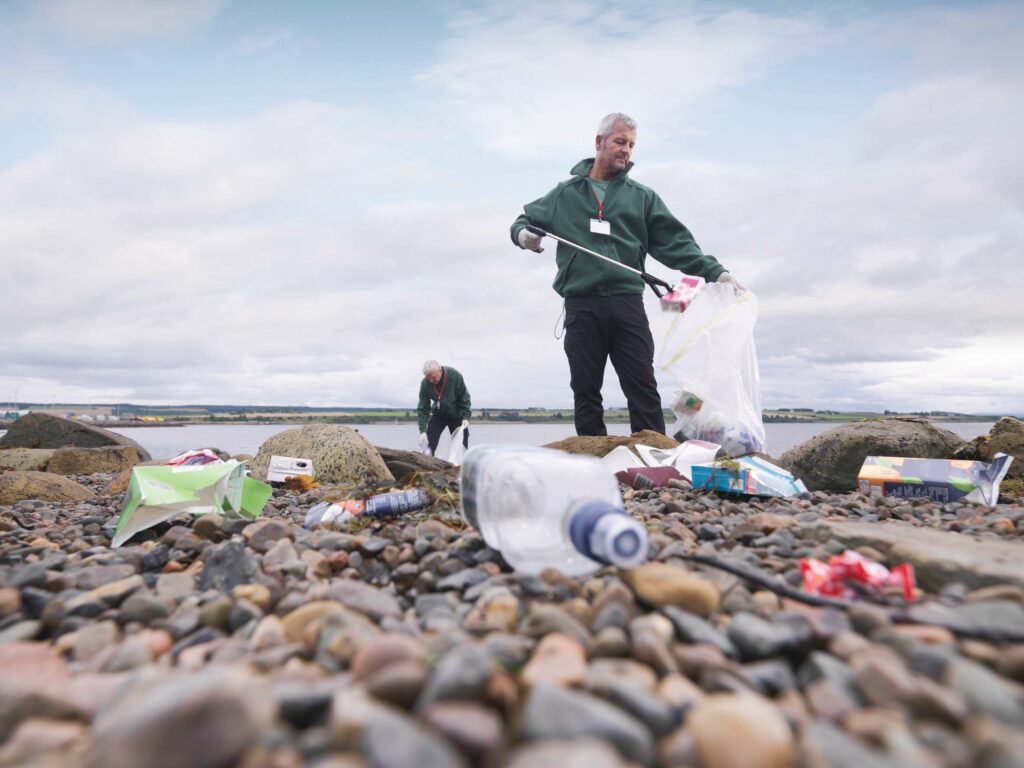
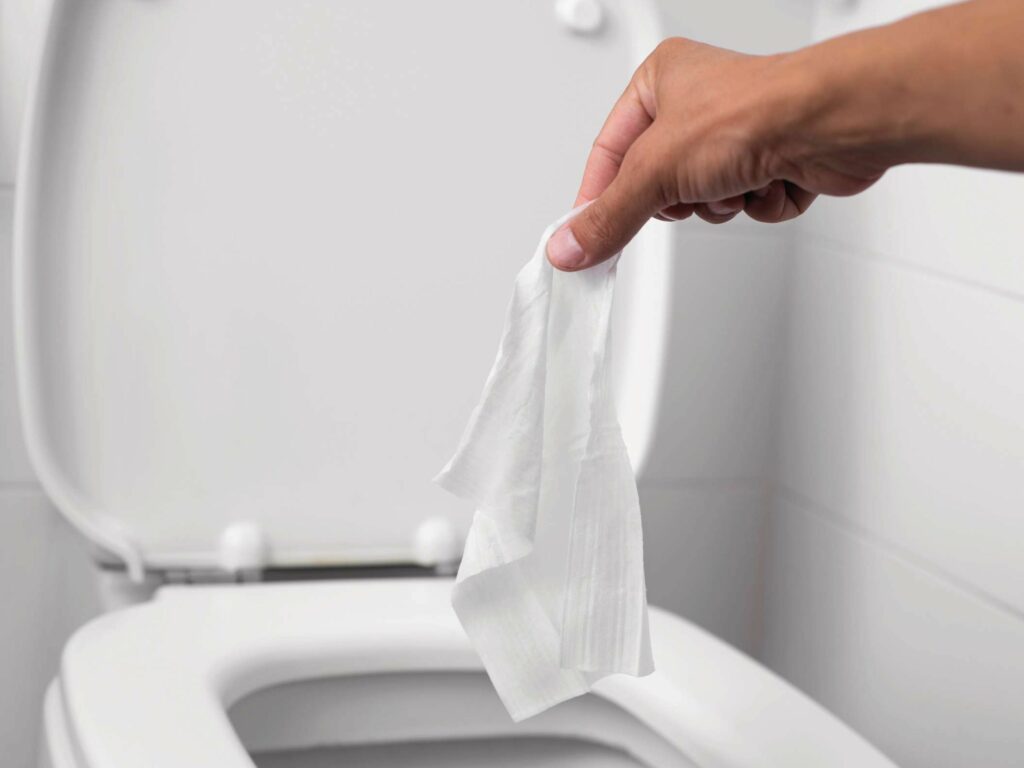
Have your say
What do you think about the issues raised here? Write to us or email editor@countryfile.com